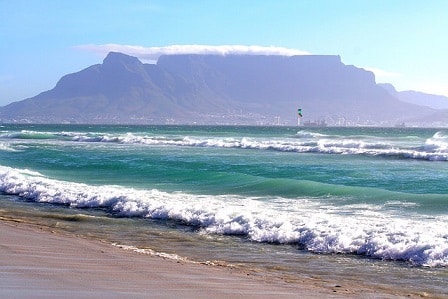
This has led to drought conditions which are the worst the country has faced since 1982, leaving in excess of 2.7-million households across the country facing water shortages. Dams in many areas are at all-time low and food security is being threatened in many areas too, including in the provinces of Free State and KwaZulu-Natal, both of which have been declared disaster areas by the South African Government.
Water restrictions have already been instituted in Pretoria, South Africa’s capital, and are likely to be instituted in various other areas in the very near future. Western Cape farmers, Swartland residents and many others have described this as their worst dry spell since 1952. Normally the huge storage units in the Swartland fill up with around 17,000 tonnes of wheat each in November, the Koperfontein silos currently only contain around 5,000 tonnes.
There are fears that the food prices which are already high will increase to crippling levels in December as farmers struggle to meet targets and operate at a loss. For families that are already living a hand-to-mouth existence, this is devastating news; many families already spend in excess of 50% of their income on basic food items, and any further increases will create more suffering for them.
While this year’s crops have been affected, the main concern for farmers now is the next crop, which should be planted now but cannot be due to the drought. Those most likely to be affected the most are the soybeans, maize, sugarcane and livestock farmers.
The amount of wheat produced in the Western Cape, the breadbasket of the country, for instance has reached record lows this year with farmers only harvesting approximately 30% of their normal harvest.
While South Africa is currently drawing water from neighbouring Lesotho to augment the country’s resources, especially in Gauteng, and t other arrangements are being made with Zimbabwe to access water from the Zambezi, it is up to every South African to do everything they can to respect water, to save water and to reuse water where possible.
Get water coolers, free water cooler trial and site needs assessment from Living-Water. Buy bottled water coolers and mains water coolers in London for your home or office.





